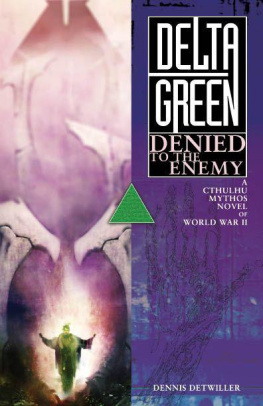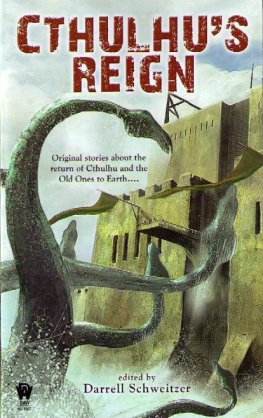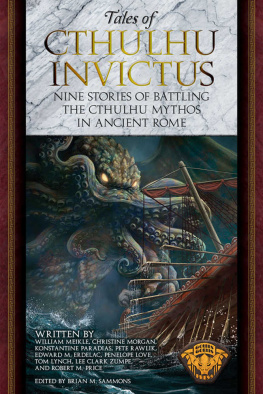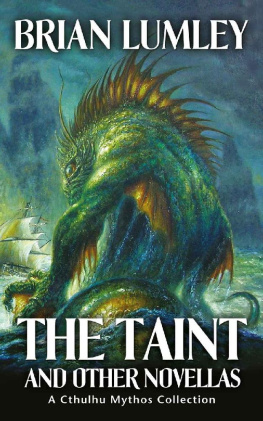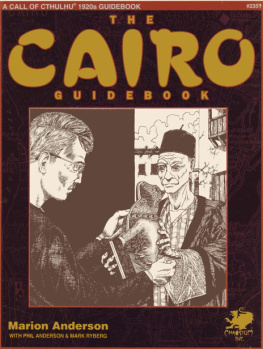Delta Green: Denied to the Enemy 2004, Dennis Detwiller. Cover painting 2002, Samuel Araya. Graphic design by Jessica Hopkins. Proofreading by Brian Appleton. Editing by Adam Scott Glancy and Shane Ivey. Published by arrangement with The Delta Green Partnership. The intellectual property known as Delta Green is TM and The Delta Green Partnership, who has licensed its use in this novel. Quotations from other sources are their respective authors. All rights reserved worldwide.
PROLOGUE:
To Hinder a Gentleman from Hell
December 24, 1961: Blackpool, U.K.
Lieutenant General David Leslie Cornwall, O.B.E., gray and distinguished and frail, crept away from the festivities which consumed the lower rooms of Clark House and slowly ascended into the darkened floors which lay above, sinking into the shadows like a fish into water. It was his house and it was filled with phantoms, people he did not really know or care to know. Empty, shallow people who swore friendship to him and then turned their backs on him when the parties ended. And the parties always ended. Some were family, blood relations, others just former colleagues or their successors. None of them meant one spot to David Cornwall. But he was always very polite. He was always very British.
Christmas songs rang out from below. It was like this every year, good cheer and festivities which brought back a hundred memories at once; recollections of times when his life had meaning and purpose, of people and places his decisions had changed forever. They were all gone now. All gone. The old man considered his watch in the dark. The ghostly green hands of the watch, illuminated by radium, showed it was ten minutes to midnight. Soon it would be Christmas day, a sight he would never live to see.
The thought did not bring any great sorrow.
The stairs creaked as he moved slowly forward up the rich burgundy rugs, his stocking feet whispering on the plush surface, navigating by memory as much as by instinct in the darkness. Hallways shot off in three directions at the top of the stairs, and the old man went straight ahead, pausing a moment to comically salute a suit of armor which hung suspended in an alcove, lit vaguely by light from under the door. He supposed it was the alcohol.
The old man slid the door open slowly, hoping to avoid the horrible whine he knew would occur from its rusty hinges. It happened anyway, but there was no pause from below. No hesitation in the dull roar of his family as the festivities continued. No one had even noticed his absence, he was sure.
The study was silent, warm and scholarly, lit only by a green-visored desk lamp. It had slipped his mind to quash the light when he had retired for the evening last night. He considered the empty room, filled with books and other written documentation of a world which had somehow slipped from his grasp. A world of detente and nouveau riche and farmers sons in charge of weapons which could level cities. England was a target now, a stop over on the way for Russian missiles heading across the Atlantic. It was a glorified American airbase which would be sacrificed, if
If. He used to know so much of if. He used to be able to dictate what ifs would come to pass and which would not. He was once a powerful man. But no longer. Except for one thing.
Except for the book.
The one book in the room which still spoke of ifs. Which could still control their outcome... But it was best not to think of such things. Soon enough he would know. The truth would be revealed in the next few minutes. Either way, it meant the end for him. Either way it would come, he welcomed it.
He thought of Dr. Faust and the devils bargain:
How uselessly Ive laboured to collect
The treasures of the human intellect,
And now I sit and wonder what Ive done.
I feel no new strength surging in my soul.
Im not a hairsbreadth taller, Im not one
Step nearer the infinite goal.
But there were other sources of information than the human intellect.
He crept over to the desk and sat down in his old mans manner, letting out a sigh of pain and discomfort as he settled into the warm recesses of the chair. Sliding the bottom right drawer open he removed a large teak box and placed it carefully on the desk, lining it up so it was perfectly flush with the edge. Intricate Chinese designs were incised in the cover, wrapping and intertwining to form complex geometric forms. The wood was shiny and thick with shellac, the light tan wood gone a deep and rich brown-black with age.
The box was a gift from Lt. Commander Ramsey, a man long since gone. He supposed he was feeling now what Ramsey felt then, when he gave him the box as a gift in Hong Kong in 1930: the sensation of extinction, an early whiff of the grave. The last fading feelings of surety and faith in oneself.
With the gift the mantle had been passed, as it had been a million times before. Did Ramsey feel the same sense of emptiness? Did Ramsey understand what he was doing while he was doing it, or was it base instinct? More importantly, who held the mantle now?
Cornwall found with regret he could not say.
The box had been constructed to house a large pistol and several cartridges. Inside was his Webley revolver, a huge and cumbersome-looking weapon. It had hung from his belt on a chain during the Great War, and had been with him ever since.
The old man closed his eyes. In his mind he could see his men crawling over the moonscape of No Mans Land, cratered, broken, and rich with the rotting bodies of medics, snipers, and infantrymen left for the rats.
And worse things.
Cornwall opened his eyes and blinked rapidly, trying to push his memories away, but they clung to his vision even after his eyes were wide. Nightmare lupine shapes leaping through trenches with razor claws and breath like a million opened tombs. McAllistair screaming. Gunfire in close quarters as deafening as a thunder blast, over and over and over again. Taloned hands playing through human innards like a child plays in the sand. Glowing green feral eyes in the tunnels floating in the black, silent, like fireflies. Screaming. McAllistair screaming.
Then the roar of the shells falling like spring rain.
Even now, over forty years later, Cornwall found his hands shaking at the memory. With a grunt, he stood and shuffled over to the liquor closet. He made this trip so frequently he was surprised his footprints werent trodden into the ancient rug by now. Fumbling with a glass and Glenlivet, Cornwall poured a deep tumbler of the brown liquid and swallowed most of it in one long gulp.
Liquid courage. As the warmth filled his body Cornwall limped back to the chair and sat, hardly feeling the shooting pains in his knees through the alcohol haze as he settled in.
He removed the gun from the box, cradling it in his gnarled fingers, and for a moment, the pain of the old joints in his hand, a pain no medicine seemed capable of curing, slipped away as he began to disassemble it. He paused only once during his laborious and careful cleaning to check the clock on the wall.
Five minutes to midnight.
He reassembled the weapon rapidly, with the certainty of training. It was only when he picked up the bullet that his hands began to shake. But in one fluid motion, his trembling hands slipped a thick round in the open face of the Webley, and snapped the break-open revolver closed with a click. It was now a weapon. Cornwalls jaundiced blue eyes found the clock and fastened on it.

